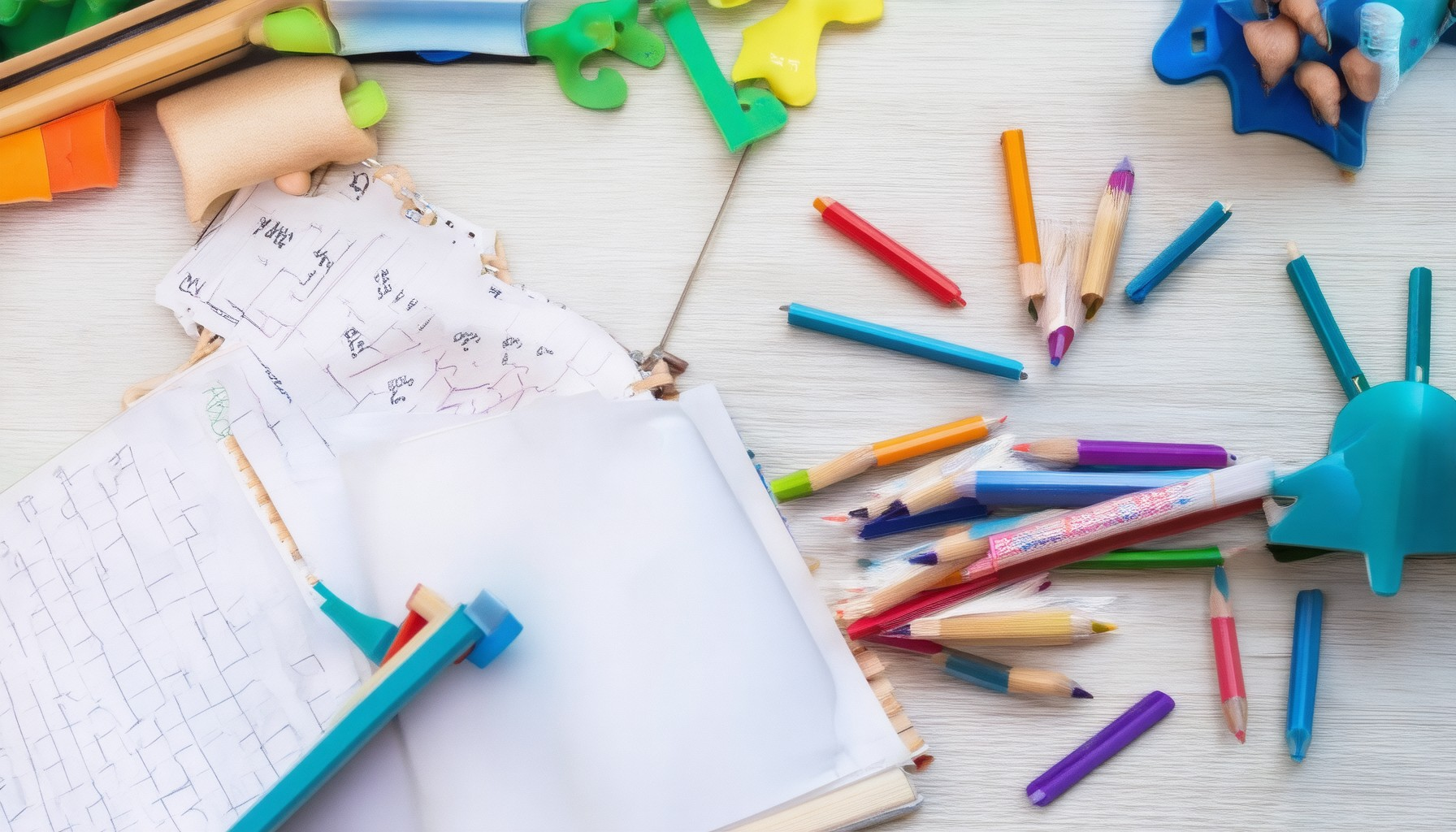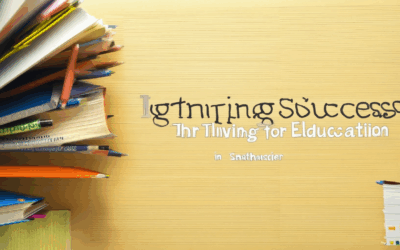Preparing your child for the transition to school is one of the most significant milestones in a parent’s journey. As you navigate the world of school readiness, it’s essential to equip yourself with practical strategies and insights that will empower your child to thrive both academically and socially. Whether you’re looking for actionable tips to kickstart their learning journey or guidance on creating a structured routine, this guide offers a comprehensive roadmap to ensure your child is fully prepared for the challenges and opportunities ahead. From building foundational skills to fostering emotional resilience, we’ll explore everything you need to know to support your child’s successful transition into the next chapter of their education. Let’s dive into the key areas that will help you unlock school readiness and lay a strong foundation for their future success.
Key Takeaways
– Streamline School Preparation: Organize supplies early, set up a dedicated study space, and establish a consistent daily routine to minimize last-minute stress.
– Leverage Organization Tools: Use planners or digital calendars to manage assignments, tests, and activities, ensuring staying on top of your schedule.
– Prioritize Health: Maintain a balanced lifestyle with adequate sleep, nutritious meals, and regular exercise to support cognitive function and overall well-being.
– Review and Prepare Thoroughly: Pre-study key materials, highlight important sections, and create summaries for better recall during class.
– Communicate Early with Teachers: Connect with educators to confirm syllabi and expectations, ensuring full preparation for the first day.
– Charge and Pack Smart: Keep devices charged and packed lunches ready to save time and maintain energy levels.
– Stay Focused and Organized: Break tasks into manageable steps, prioritize responsibilities, and allocate specific time blocks for studying and relaxation.
– Create a Structured Routine: Balance academics, physical activity, social connections, and self-care for an 11-year-old, fostering motivation and focus.
– Efficiently Manage Time: Start early, lay out outfits, and stick to a consistent morning routine to ensure a productive and stress-free day.
What is the Most Important Thing for School Readiness?
School readiness encompasses various critical components that lay the foundation for a child’s academic and personal success. Among these, the most important aspect is the combination of physical, cognitive, social, and emotional development. However, the cornerstone of school readiness often revolves around one key element:
1. Physical Health and Well-being
A child’s ability to thrive in school begins with their physical health. Regular check-ups, adequate sleep, balanced nutrition, and daily exercise are essential to ensure they have the energy and focus needed to engage in learning activities. Physical health directly impacts cognitive function and emotional stability, making it a foundational pillar of readiness.
2. Cognitive Development and Early Learning
Cognitive skills, such as problem-solving, critical thinking, and memory, are critical for school success. Children who have access to quality early learning experiences, whether through preschool programs or home-based activities, tend to excel academically. These experiences help develop the necessary tools to navigate school challenges effectively.
3. Social and Emotional Competence
Strong relationships and emotional intelligence are vital for school readiness. Children who can interact positively with peers, exhibit empathy, and manage emotions are better prepared to navigate the social dynamics of school. Positive interactions and emotional regulation skills foster a supportive environment for learning.
4. Emotional Maturity and Resilience
Emotional maturity allows children to approach challenges with a positive mindset. Resilience is key to overcoming obstacles, whether they arise in the classroom or elsewhere. Children who can regulate their emotions and maintain a growth mindset are more likely to succeed in school.
At Enroll Maven, we believe that a holistic approach to education is essential. By focusing on these key areas, parents and caregivers can support children in becoming confident, curious learners ready for the demands of school. Explore our resources for tips on fostering school readiness and beyond!
- Learn more about effective learning strategies
- Explore additional educational resources
- Discover online learning opportunities
What Are the Five Essential Domains of School Readiness?
The five essential domains of school readiness are critical components that ensure children are prepared to thrive in a school environment. These domains focus on the cognitive, emotional, social, physical, and environmental aspects necessary for successful learning.
- Emotional and Social Competence :
- Develops empathy, self-regulation, and relationship skills.
- Understanding emotions and communicating effectively.
- Conflict resolution and teamwork.
- Academic Skills :
- Basic math concepts (e.g., algebra, counting).
- Reading comprehension and phonological awareness.
- Writing skills and understanding sequences.
- Physical Development :
- Fine motor skills (e.g., drawing, using tools).
- Gross motor skills (e.g., running, climbing).
- Health and wellness awareness.
- Cognitive Development :
- Problem-solving abilities.
- Critical thinking and curiosity.
- Memory and attention span.
- Social and Environmental Factors :
- Family and community support.
- Access to safe environments and resources.
- Cultural awareness and communication skills.
These domains work together to ensure children are ready to engage with peers, adapt to routines, and learn effectively in a school setting.
How to Improve Readiness to Learn
To enhance your readiness to learn, consider implementing the following strategies:
- Set Clear Goals:** Define your objectives and break them into manageable tasks. This clarity helps maintain focus and motivation.
- Organize Your Environment:** Create a dedicated space for learning free from distractions. Use tools like planners or digital calendars to schedule your time effectively.
- Practice Mindfulness:** Engage in techniques like deep breathing or meditation to stay present and improve concentration during study sessions.
- Prioritize Physical Health:** Maintain a balanced diet, exercise regularly, and ensure adequate sleep to support cognitive function and memory retention.
- Stay Curious and Open-Minded:** Challenge yourself to explore new topics and engage in hobbies that stimulate your curiosity and encourage creative thinking.
- Seek Support and Collaboration:** Discuss challenges with peers or mentors to gain insights and strategies. Collaborate on projects to enhance interaction and enjoyment in the learning process.
- Embrace Failure as Learning:** View mistakes as opportunities to grow. Keep a positive attitude and use setbacks as motivation to improve and adapt.
How to Get Ready for School Fast
Getting ready for school can feel overwhelming, but with a well-organized plan, you can tackle it efficiently. Here’s a step-by-step guide to help you prepare quickly and effectively:
- Organize Your Supplies Early: Create a checklist of essential items and shop for school supplies ahead of time. Keep backpacks, notebooks, and other materials ready near the door.
- Set Up Your Study Space: Designate a quiet area at home for studying and homework. Make sure it’s comfortable and free from distractions.
- Plan Your Daily Routine: Establish a consistent schedule that includes time for studying, meals, and relaxation. Stick to it as much as possible to avoid last-minute stress.
- Stay Organized with Tools: Use planners or digital calendars to track assignments, tests, and extracurricular activities. This helps in staying on top of your schedule.
- Practice Healthy Habits: Ensure you’re getting enough sleep, eating nutritious meals, and exercising regularly. A healthy body supports a sharp mind.
- Review Key Materials: Go over textbooks, notes, and study guides beforehand. Highlight important sections and create summaries for easier recall during class.
- Communicate with Teachers: Reach out to your teachers early to confirm syllabi, assignments, and any special requirements. This ensures you’re fully prepared for the first day.
- Charge Devices in Advance: Make sure your laptop, tablet, and phone are charged and ready for the first day of classes.
- Pack Lunches and Snacks: Prepare easy-to-make lunches and snacks that are both nutritious and portable. This saves time in the morning and keeps you energized throughout the day.
- Double-Check Clothing: Lay out your clothes for the week in advance. This prevents rushed decisions and ensures you have everything you need for the first few days.
- Stay Focused on the Task at Hand: Avoid procrastination by breaking tasks into smaller, manageable steps. Prioritize what needs to be done first and work systematically.
- Utilize Time Wisely: Allocate specific blocks of time for studying, commuting, and relaxing. This helps in balancing your responsibilities and maintaining a calm demeanor.
By following these tips, you’ll be well-prepared and ready to embrace the school year with confidence. Stay organized, stay focused, and enjoy the journey!
How to Get Ready in 20 Minutes
Getting prepared quickly doesn’t mean sacrificing quality. Here’s a step-by-step guide to help you get ready efficiently:
- Start Early:** Set your alarm 15 minutes earlier than usual to give yourself enough time to gather your thoughts and essentials.
- Plan Your Outfit:** Lay out your clothes the night before to save time in the morning. Choose something comfortable and suitable for your day ahead.
- Prepare Breakfast:** Have a simple, nutritious breakfast ready to kickstart your day. Consider options like oatmeal, smoothies, or a piece of fruit for a quick energy boost.
- Organize Your Bag:** Pack everything you need the night before. This includes your laptop, notebook, and any necessary documents or materials for work or study.
- Shower and Groom:** Take a quick shower and spend a few minutes on personal hygiene. Freshening up will help you feel ready for the day.
- Morning Routine:** Stick to a consistent morning routine. Whether it’s meditation, exercise, or just a few minutes of quiet reflection, it helps set a positive tone for the day.
- Check Your Schedule:** Review your schedule or to-do list one last time to ensure you’re prepared for whatever the day may bring.
- Leave on Time:** Make sure you leave yourself enough buffer time to travel or arrive early to your destination. This reduces stress and allows you to start your day calmly.
By following these steps, you can efficiently prepare yourself in under 20 minutes, ensuring you’re ready to tackle the day head-on. Remember to stay organized and focused on what matters most for your productivity and well-being.
Creating a Good Routine for an 11-Year-Old
A well-structured routine can help an 11-year-old stay balanced, motivated, and focused. Here’s a comprehensive guide to crafting a routine that works:
- Sleep Routine: Establish a consistent bedtime schedule. Encourage relaxation activities like reading or taking a warm bath before bed. Consistently waking up at the same time each morning helps regulate their internal clock.
- Morning Routine: Start the day with a wake-up call at 7:00 AM. Include a quick stretch or light exercise to energize their body and mind. A nutritious breakfast, like oatmeal or whole-grain toast, sets a positive tone for the day.
- Academic Focus: Dedicate time each day for homework and studying. Use study hacks like the Pomodoro Technique to maintain concentration and productivity. Incorporate breaks with fun activities to keep their energy levels high.
- Physical Activity: Encourage at least 30 minutes of physical activity daily. This can be anything from playing a sport to going for a family walk. Active play not only keeps their body strong but also boosts mental health.
- Social Connections: Schedule regular calls or visits with friends and family. Maintaining these relationships helps them feel supported and connected during their transition to middle school.
- Screen Time Management: Set boundaries for device usage. Limit screen time to 1-2 hours per day and encourage offline activities like drawing, reading, or building DIY projects.
- Nutrition and Hydration: Provide healthy snacks like fruits, nuts, or yogurt. Remind them to drink plenty of water throughout the day to stay hydrated and maintain energy levels.
- Homework Organization: Teach them to use planners or digital apps to track their assignments. Breaking tasks into smaller steps can make homework less overwhelming and more manageable.
- Mental Health Awareness: Talk to them about managing stress and emotions. Introduce mindfulness or deep-breathing exercises as tools to relax and stay calm when they feel overwhelmed.
- Family Involvement: Hold regular family meetings to discuss their week. Ask for their input on how things went and what they’d like to improve. This fosters open communication and teamwork.
Conclusion: A routine tailored to an 11-year-old’s needs should balance academics, physical activity, social connections, and self-care. By staying consistent and adaptable, you can help them thrive during this pivotal stage of life.









0 Comments